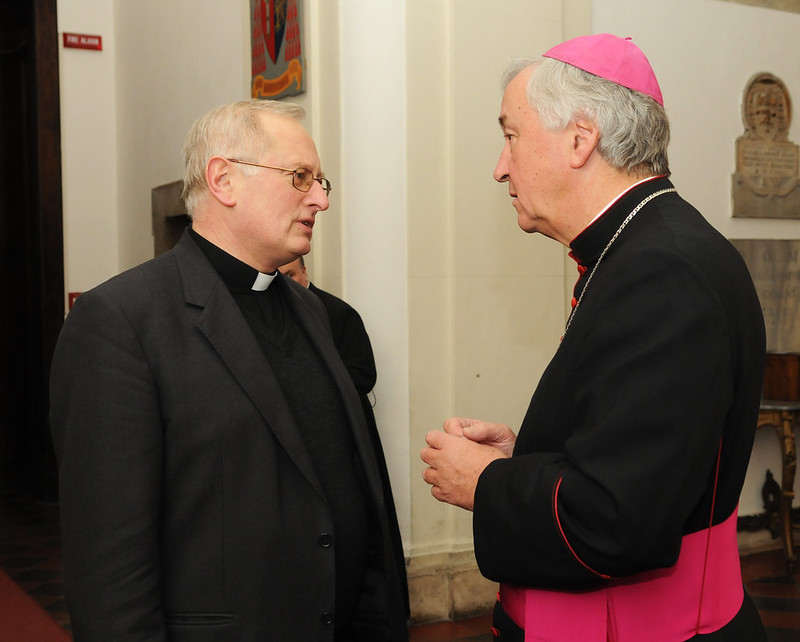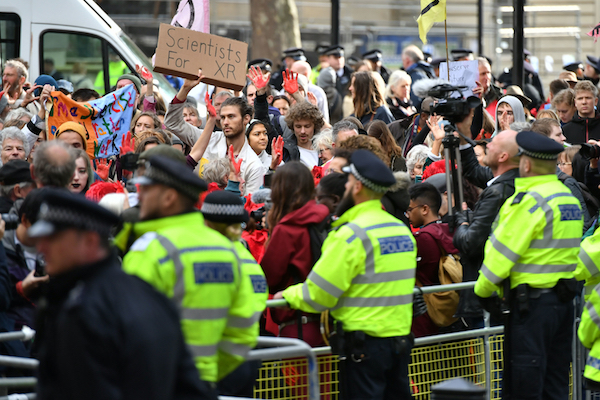Extinction Rebellion, the environmental campaigning group that shut down central London with non-violent protests in October, has thanked Churches for their support, telling an audience of Religious sisters “being disruptive gets attention”.
Extinction Rebellion had been invited to participate in a discussion about protest, called ‘Responding to the Climate Emergency and the place of Civil Disobedience’, by the Religious of the Assumption in Kensington, west London.
A speaker from the movement – Olly Hawes – told the audience, of lay Catholics and Religious sisters, that he had been drawn to the first Extinction Rebellion actions in April 2019 by its commitment to contribute to climate and ecological justice and to force the British Government to give more serious attention to the climate crisis.
He said that activists feel that traditional campaigns have not prompted the urgent structural changes necessary, such as keeping fossil fuels in the ground and challenging the “toxic” economic system which is destroying Earth’s life systems and driving other species to extinction.
“Being disruptive gets attention” he said, “but our actions are always nonviolent”.
He described being “completely blown away by Church support, particularly from the Church of England, during the two-weeks of action in October”.
Several Anglican bishops and other clergy led prayer sessions in Trafalgar Square, but practical support was very much appreciated too – “churches offered toilets, showers and a place to take a break”, he said. St Clement’s on the Strand was warmly praised for its hospitality.
The meeting comes as the Church’s aid agency, Cafod, released its own guidance around non-violent direct action. In a blog for Cafod’s website Daniel Hale, Head of Campaigns, writes that Cafod doesn’t encourage supporters to break the law, but stands in prayer and solidarity with those who have chosen to risk arrest.
“We should support those who engage in non-violent direct action for the good of our neighbours and the Earth.
And we should respect those who decide, in conscience and painfully, that they must disobey the law in this case, provided their actions are non-violent and proportionate,” he writes.
In her commentary after the talk on Monday Pat Gaffney, the former head of Pax Christi UK, who has been involved in civil disobedience as a peace campaigner, said it was important to act with hope, and added that a faith perspective helps to instil hope.
She asked the audience to reflect on how we motivate other people – by being disruptive or by transforming from within structures. A discussion session afterwards suggested that people thought both were essential to address the scale of the environmental crises.
One person spoke of the United Reformed Church divesting from fossil fuels in May after a dedicated campaign. Another spoke of being sympathetic to civil disobedience but being put off by the word rebellion “which suggests violence”, but Hawes underlined again that nonviolence is a key value of the movement.
He pointed out that many Extinction Rebellion initiatives are not disruptive, such as the movement’s interfaith forum in Haringey, which examines how to engage people of faith with the climate and biodiversity crises. Pat Gaffney said afterwards, “the meeting highlighted the value of open, critical discussion that can help challenge assumptions and broaden the base of support for climate action”.



 Loading ...
Loading ...